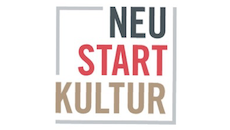Medea
When watching externally hosted videos, third parties (YouTube, Idagio, Vimeo) will have access to some of your transmitted data.
Please have a look at our privacy policy for additional details.
Eva Vogel Rezitation - Medea
Lena Sutor-Wernich Mezzosopran
FestpielOrchester Göttingen
George Petrou Musikalische Leitung
Händel Ouverture Teseo (HWV 9)
Koumendakis Five more steps until you fall asleep
Kouroupos Lamento - Concerto grosso
Benda Medea
When George Frideric Handel died in 1759, the opera seria genre, which he had steered to such great heights some decades earlier, had reached a state of deep crisis. The implausibility of the often very intricate plot was criticized, the considerable length as well as the stereotypical sequence of recitatives and arias that only made sense musically, but not dramaturgically, were criticized, the opulent set, which merely strove to outdo one spectacle with another was criticized as well. And in the end, opera had become a source of amusement that was simply too expensive.
Handel himself, partly in line with the interest of his audience, partly pursuing this interest himself, had concentrated since the 1740s on the English oratorio, which successfully countered some of these criticisms, but curiously remained unknown to critics on the European continent for quite a long time. And so it was composers like Christoph Willibald Gluck who set about finding solutions to the problems within the genre of opera itself: with Orfeo ed Euridice, for example, a compact opera of around two hours' performance time with only two main roles and a small supporting role. Gluck thereby managed the feat of appealing to both the discerning Viennese audience in the Italian language and the equally discerning Parisian audience in French.
Among the countless other reform initiatives of the 1760s to 1780s, which hardly ever lasted beyond a brief heyday, was the melodrama. This involves a musically accompanied declamation by a protagonist who, in monologue form, enables the audience to experience his or her inner turmoil in the face of an existentially decisive situation. In keeping with the dramaturgical likelihood, this does not transpire in closed musical forms, but rather in musical commentaries that are strung together and kept rather short. The music rarely accompanies the declamation; it usually fills the pauses in the speech in which the main character seeks to sort out his conflicting thoughts (Hamlet's »To be or not to be« is perfectly fitting here). Supporting roles can lend the monologue even greater dramaturgical credibility, for example by having the persons who triggered the main character's musings make an appearance themselves. As a genre, the melodrama did by no means remain inconsequential: in the second act of Ludwig van Beethoven's opera Fidelio, there is a short melodrama by Leonore and Rocco, and Arnold Schönberg in particular once again recognized the great expressionist potential of this genre in the early 20th century. His monodrama Erwartung, based on a libretto by Marie Pappenheim, catapulted 18th-century melodrama techniques into modernist music theatre.
Among the criticisms repeatedly voiced against opera seria in the second half of the 18th century was the choice of material. Complex historical material from antiquity and the Middle Ages no longer met public expectations. Instead, in keeping with the motto of this year's Handel Festival, central scenes taken from tales of ancient mythology were favoured. In Gluck's Orfeo ed Euridice, for example, the complete fable is not told, but only the reduced excerpt of Orfeo's failed attempt to lead his beloved Euridice out of the underworld. It was safe to assume that the rest of the plot was already known.
All these elements also come to bear in Georg Anton Benda's (1722-1795) melodrama Medea. The material for this melodrama goes far back into Greek antiquity. The best-known version is by Euripides. However, various authors both before and after him recount the story in different ways, some epic, some dramatic. It can be summarized as follows: Medea is the daughter of King Aietes of Colchis. Aietes is the guardian of the Golden Fleece, which is to be stolen by the Argonauts led by Jason. Medea falls in love with Jason, helps him obtain the Golden Fleece, flees with the Argonauts and marries Jason. The couple eventually live in Corinth with their two sons. There, however, Jason abandons his wife to marry Krëusa, the daughter of King Creon of Corinth. In revenge, Medea kills Krëusa, Jason and her two sons and flees to Athens.
Friedrich Wilhelm Gotter (1746-1797), one of the founders and publishers of the Göttinger Musenalmanach, radically condensed this ancient subject matter into his melodrama. We essentially follow the gnawing thoughts of the protagonist who has been cast out by Jason: between an abysmal sense of hurt and a terrifying desire for revenge. Should it be done? Should she resort to extremes and kill the children they have together? At the end of the melodrama, the answer is clear: there is no happy ending. In line with the ancient maxim, the tragic end on stage sends the audience back out into reality, purified by the excitement.
Gotter wrote this text, which appeared in print with the subheading »a drama mixed with music«, in 1775. Gotter had served as the secretary at the Gotha ducal court since 1772 and maintained close ties with the court theatre. His employer, Ernst II of Saxe-Gotha-Altenburg, invested a great deal of money in his theatre and hired, among others, Conrad Ekhof, the »father of German dramatic art«, as theatre director. From 1774 to 1777, the theatre company led by Abel Seyler was active in Gotha, having previously celebrated great success in Hanover and Weimar. The court conductor from 1770 to 1778 was Georg Anton Benda, who was succeeded by Anton Schweitzer. Both wrote large-scale musical-dramatic works for the Gotha court, most of which are forgotten today, but which sparked lively discussions among the reformers of German-language opera. Medea did not remain a one-off as a melodrama. Benda composed the music for Ariadne auf Naxos to a text by Johann Christian Brandes, and Gotter also provided a German translation of Jean-Jacques Rousseau's Pygmalion, a poem from 1770 entitled »scène lyrique«, which may be regarded as the true prototype of the melodrama genre. Medea and Ariadne in particular reached well beyond the borders of Gotha. The number of performances of Medea alone that took place by the year 1800 between Odense in the north, Milan in the south, Mannheim in the west and Petersburg in the east was in the mid-three-digit range; the statistics available for Ariadne are hardly any different. A contemporary observer even remarked that »melodramas were now flooding the world«, and by no means did he mean this in a negative way. In the Allgemeine musikalische Zeitung of 1806, it read: »These two pieces, especially Medea, will remain immortal as long as real music still means something.«
This optimistic assertion was not to prove true, as we can ascertain after more than two centuries of hindsight. But the number of librettists and composers who were inspired by Benda's melodramas – and also worked on them – is simply incalculable. The fact that Beethoven knew of Benda's melodramas and had them in mind when composing Fidelio is perhaps overlooked due to the marginal function of this melodrama in Beethoven's work. What is documented, however, is Wolfgang Amadeus Mozart's enthusiastic response to performances of Medea and Ariadne in Mannheim. Mozart expressed to his father in November of 1778: »What I saw was Medea by Benda. He has done another, Ariadne auf Naxos, both of which are truly excellent. [...] I love these two works so much that I keep them with me.« Yes, Mozart added, even the recitatives in an opera should generally be written in this way. The plan to carry this out in an opera by the name of Semiramide did not, however, come to fruition in Mozart's lifetime.
In the first part of the program, the melodrama Medea is preceded by three orchestral works. The overture to Handel's Teseo from 1712 is followed by the approximately ten-minute piece Five more steps until you fall asleep from 2008 by Giorgios Koumendakis (*1959) in an arrangement for a baroque chamber orchestra. Koumendakis is one of the most distinguished composers of his generation. He has been awarded the Prix de Rome for his work, an arts prize that has been awarded since 1663 and which has been bestowed on numerous prominent composers in the past, such as Claude Debussy in 1884. Koumendakis became known to a worldwide audience when he created and conducted the music for the opening and closing ceremonies of the 2004 Summer Olympics in Athens. The Lamento – Concerto grosso was composed by Giorgios Kouroupos (*1942). Musically inspired by Handel's Concerti grossi, he sets three pessimistic poems by the English poet William Blake (1757-1827) here for mezzo-soprano and baroque orchestra. With its monologic tone, this work, premiered in 2013, bridges yet another gap between Medea and the present day.
Andreas Waczkat



